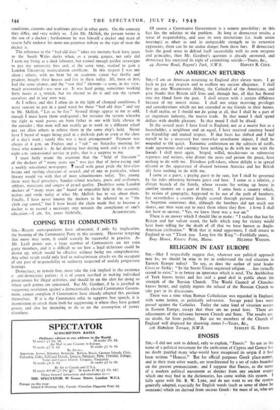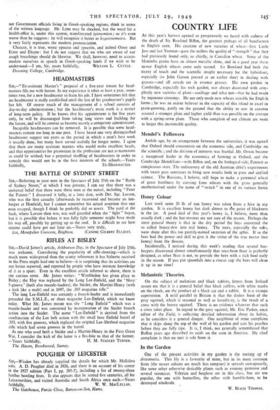ENOSIS
Sra,—I did not seek to defend, only to explain, "Enosis." Its use as the name of a political movement for the unification of Cyprus and Greece has no doubt puzzled many who would have recognised its origin if it had been written " Henosis." But for official purposes Greek place-name. and in their train other words, are transliterated by a set of rules founded on the present pronunciation: and I suppose that Enosis, as the name of a modern political movement as distinct from any ancient usages which one may find in the dictionaries, has come within this system. I fully agree with Mr. R. W. Lyric, and do not want to see the system generally adopted, especially for English words (such as some of those he mentions) which are derived from ancient Greek: for most of us, who are
not Government officials living in Greek-speaking regions, think in terms of the written language. Mr. Lyne may be shocked, but the word for a health-office is, under this system, transliterated iyionomion ; so it's even worse than he suggests: he will recognize it better as hygeionomeion. But it very fairly represents the modern pronunciation.
Chaucer, it is true, wrote ypocras and ypocrite, and indeed Omer and &tor and Eleyne: but I do not suggest that we who are aware of our rough breathings should do likewise. We shall, however, need to accom- modate ourselves in speech in Greek-speaking lands if we wish to be



































 Previous page
Previous page